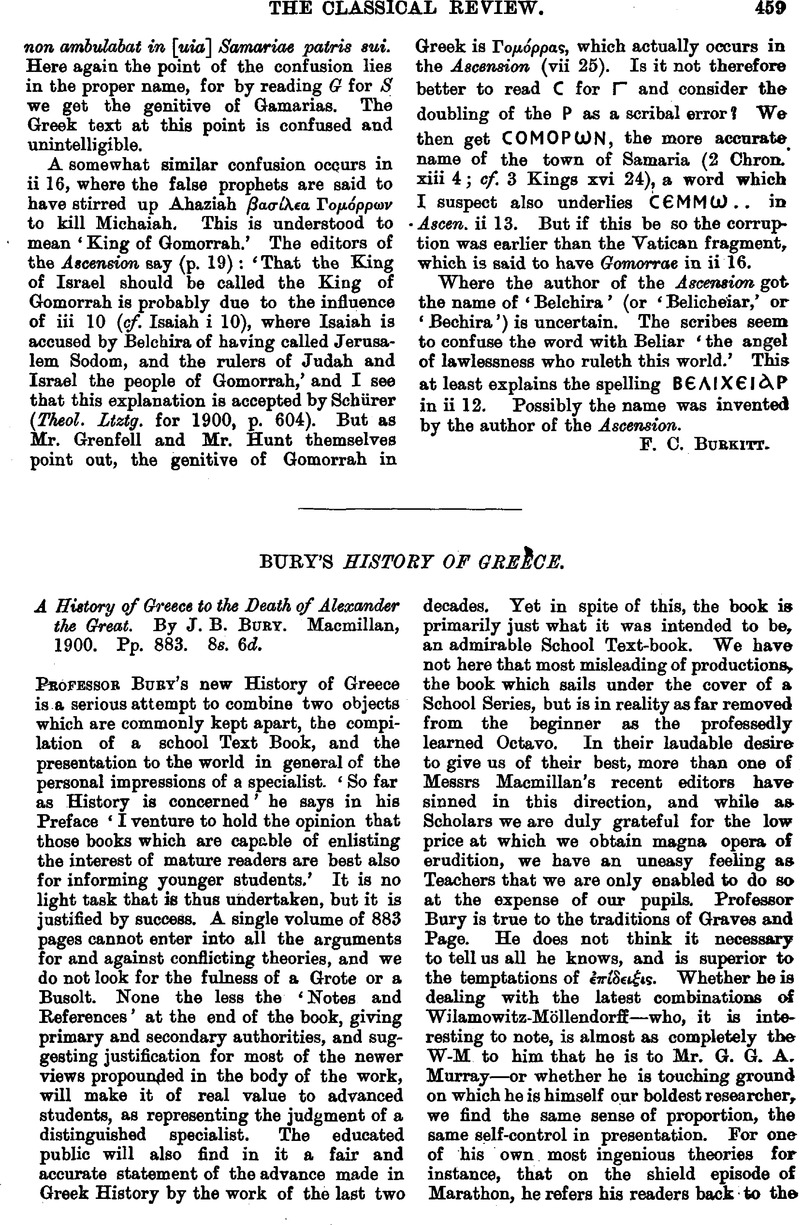No CrossRef data available.
Published online by Cambridge University Press: 27 October 2009

page 460 note 1 See Mr.Hogarth's, and Prof. Ernest Gardner's Essays in ‘Authority and Archaeology,’ pp. 244, 273Google Scholar.
page 461 note 1 The ability with which Cauer presents his general point of view is so conspicuous that it will be justly always associated with his name. Something like however was in the air before his Grundfragen was published in 1895, and was not a little due in this country to the impression made by certain chapters of Mr. Andrew Lang's Homer and the Epic. See Professor Platt's review of Mr.Lang's, book, Clas. Rev. for 1893, pp. 318–322Google Scholar.
page 461 note 2 First published Lippincott's Magazine, Jan. 1, 1891. Later in the same year Messrs. Macmillan published an edition with the following Preface. ‘This is the story of the Light that Failed as it was originally conceived by the Author.’ On comparing the two we find (a) that Chapter VIII. in the body of the book was cut out for Lippincott and the connections botched, and (b) that the ending, which, as originally conceived ![]() was rewritten and greatly abridged to suit the ‘Family’ character of its Public. The Author clearly took no interest in the Family Version, and the botching is badly done and carries no conviction. His method too is arbitrary. Where two incidents of the ending as originally conceived had to be incorporated into the new happy ending, a few alterations were made which do not seem to have been required by the situation. Was it carelessness in copying out his own work that led Mr. Kipling to write ‘a formless scarred blur of paint’… ‘Dick heard the sob and took it for tribute’ (L. p. 96), for ‘a scarred formless muddle of paint’ … ‘Dick heard the little hysterical gulp and took it for tribute’ (M. p. 259)? Or in spite of the inferior work he put into the happy ending could he not refrain from slight improvements in style? Or is the alteration the other way on and does the Macmillan Text here represent the later work?
was rewritten and greatly abridged to suit the ‘Family’ character of its Public. The Author clearly took no interest in the Family Version, and the botching is badly done and carries no conviction. His method too is arbitrary. Where two incidents of the ending as originally conceived had to be incorporated into the new happy ending, a few alterations were made which do not seem to have been required by the situation. Was it carelessness in copying out his own work that led Mr. Kipling to write ‘a formless scarred blur of paint’… ‘Dick heard the sob and took it for tribute’ (L. p. 96), for ‘a scarred formless muddle of paint’ … ‘Dick heard the little hysterical gulp and took it for tribute’ (M. p. 259)? Or in spite of the inferior work he put into the happy ending could he not refrain from slight improvements in style? Or is the alteration the other way on and does the Macmillan Text here represent the later work?